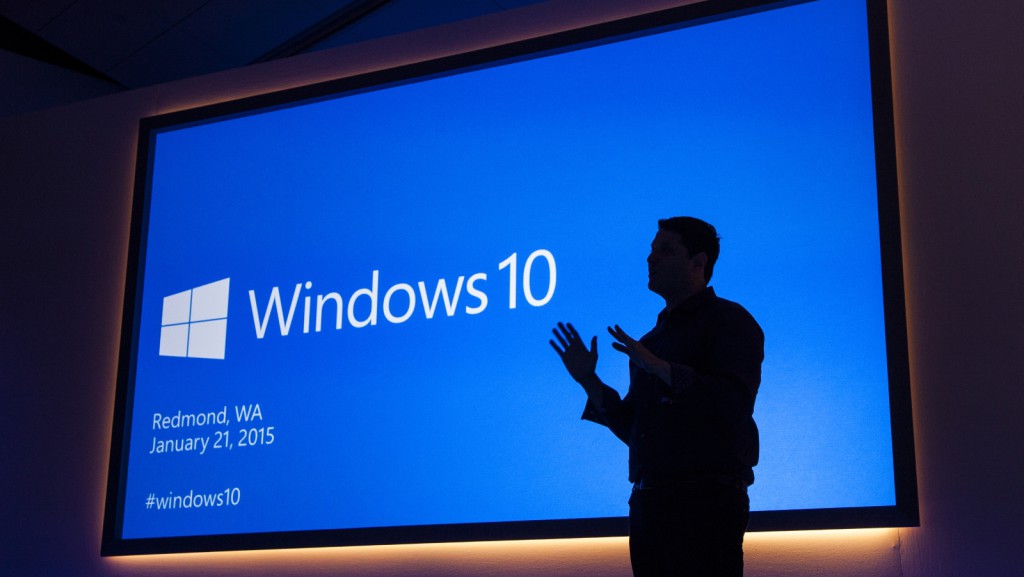For all Windows 10 related views, breaking stories and deeper analysis, visit our comprehensive Windows 10 Hub before and after Microsoft’s big launch.
If Microsoft ever found itself chin deep in a bog of its failed operating systems, Windows 10 would be the outstretched arm pulling it to safety. At least that’s evident from what we’ve seen while running pre-release versions of the OS.
No ad to show here.
With that said, Windows 10 is by no means a polished product. In fact, Microsoft has a massive list of “must dos” even after the OS is launched globally to consumers on 29 July. But, it’s miles better than Windows Vista and Windows 8 ever was.
All good signs then.
While we love to talk about the OS itself and wax lyrical about its nerdy improvements, we find that figures often tell stories better than any explanation could ever hope to do. So prior to today’s launch, we have a look at five key numbers you should keep in mind when perusing that reinstated Start Menu.
2.2-million: the last estimated number of Windows 10 Insiders
Update: Microsoft South Africa’s Anthony Doherty at the Windows 10 launch suggested that this number is closer to 5-million in total, with that figure ever expanding. He has also suggested that the Insider programme will continue throughout Windows 10’s life.
And that’s a ridiculous number of beta testers. Those who braved the bug-infested world will be given Windows 10 for free as well for all their efforts, but it’s imperative to note that many vulnerabilities have been addressed, many features have been tweaked and many issues have been found in part thanks to these 2.2-million (if not more) users.
1007: the number of days since Microsoft launched Windows 8
Image: Jason Howie via Flickr
And what an incredible thousand-odd days it has been for Microsoft. The company, now undergoing a massive overhaul at the hands of Satya Nadella, has seen it snap up Nokia‘s devices and services division, Mojang and in the process Minecraft, and subsequently declare a loss of both cash, users and investor confidence. All this since 2012.
Read more: Mojang sells itself to Microsoft for $2.5-billion, and here’s the reason why (besides money)
In the midst of it, it has seen both iterations of Windows 8 pick up just under 16% of the world OS market share.
Windows 10 will likely stay the ship in terms of angry Windows 8 users and worried consumers, especially considering the OS’s multi-device approach.
1-billion: the number of devices Microsoft hopes will run Windows 10 (within three years)
As I mentioned before, that multi-device approach is getting Redmond all arrogant. But with good reason.
A billion devices when broken down into its smaller parts (smartphones, internet of things, laptops, tablets, elevators, etc.) does seem like a realistic goal. Back in 2014, Microsoft declared that over 200-million Windows 8 licenses have been sold, while way back in 2011, we saw over 500-million Windows 7 machines in use. Remember that those machines running Windows 7 or any younger OS will be eligible for a free upgrade, so chances are we could very well see that figure reached before the year is through.
Read more: Build Tour Johannesburg 2015: Microsoft talks Africa, Windows 10 and the web’s future
1500: the number of South African bucks you’ll need to purchase a copy
And that’s just the Home version. A Pro license will cost around R2500 when making a direct conversion between US$ and South African Rand. This stat is only relevant to those running Windows XP or a pirated version of Windows though, thanks to Microsoft’s free upgrade scheme.
The free upgrade is also one of the company’s most inspired plays, considering that each OS before it required a new license to be purchased. Ridiculous, especially for those enterprises that are just too stubborn to change something that isn’t inherently broken.
Read more: Windows 10 Insiders will get Windows 10 for free, according to blog post
7: the predicted global percentage of smartphones that will be running Windows in 2018
Before Windows 10 was paraded to a worldwide audience, IDC made a bold claim at the backend of 2014, downgrading the Windows Phone market share outlook to 7% in 2018. Although this is a fair old chunk of the market, it’s just not good enough for Microsoft especially considering that Apple and Google own the vast majority of it.
But as I’ve noted, this was before Windows 10 was actually announced.
Read more: Microsoft Lumia 940 XL to feature iris scanner, polycarbonate body
Microsoft has suggested that all Lumia devices running Windows Phone 8 will be upgradeable to Windows 10 Mobile. The company maintains a list of devices that will definitely receive the update and initially, there will be a fair number available (although many boasting the Lumia name). Does this improve Microsoft’s smartphone chances especially considering the knock it recently took from the failed Nokia purchase?
We have to believe so, especially considering some of Microsoft’s new technologies, including the Continuum system.
